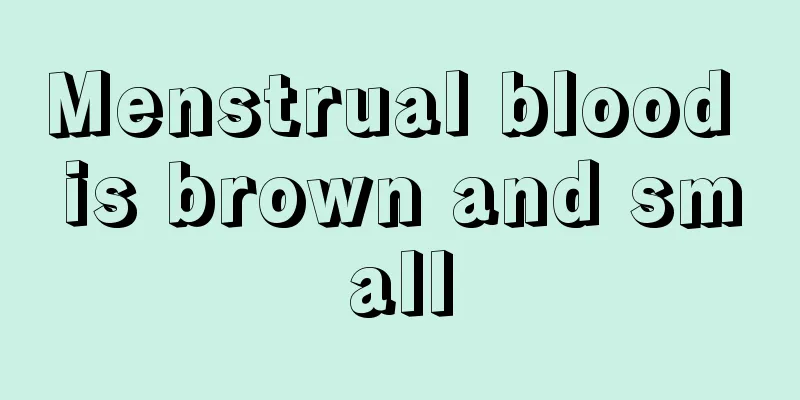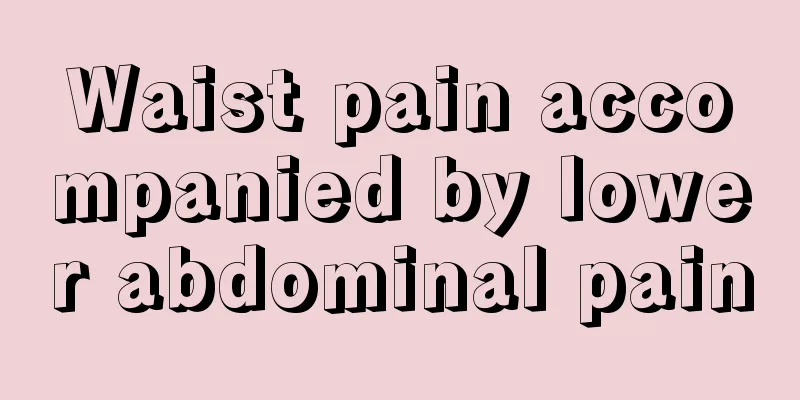What should women eat during menstruation?

|
For women, it is very important to pay attention to their diet during menstruation, because if they eat inappropriate food during menstruation, such as raw, cold food, spicy and irritating food, these will have a great impact on women's physical health, and even cause some abnormal phenomena in women's menstruation. There are inappropriate foods and there are suitable foods. So what should women eat during menstruation? 1. Before menstruation Supplement the nutrients required for physiological needs through diet: B vitamins, as well as vitamin A, vitamin C, and vitamin E. (1) Foods rich in B vitamins: wheat germ, pork, soybeans, peanuts, ham, black rice, animal liver, seaweed, kelp, milk, cereals, bananas, walnuts, etc. (2) Foods rich in vitamin A: animal liver, milk and dairy products, eggs, carrots, broccoli, spinach, lettuce, oranges, apricots, sweet potatoes, etc. (3) Foods rich in vitamin C: leeks, bell peppers, celery, cauliflower, tomatoes, spinach, cabbage, potatoes, snow peas, tangerines, oranges, grapefruits, grapes, strawberries, etc. (4) Foods rich in vitamin E: wheat germ oil, corn oil, peanut oil, sesame oil, walnuts, melon seeds, kiwi fruit, soybeans, spinach, rapeseed, corn, nuts, etc. 2. During menstruation You can appropriately supplement some warming foods or foods that ease menstruation and relieve pain. (1) Foods that warm the body: Women with a cold constitution can eat more foods that warm the meridians and dispel cold, such as dog meat, mutton, chestnuts, lychees, brown sugar, and ginger. (2) Foods that relieve dysmenorrhea: Women with dysmenorrhea can eat more foods such as spinach, celery, coriander, yam, carrots, grapes, kelp, black fungus, etc., which can promote blood circulation and relieve dysmenorrhea. (3) Others: If you have symptoms such as poor appetite and back pain during your period, you should choose foods that are nutritious, spleen-strengthening, appetite-stimulating, and easily digestible, such as jujube, Chinese yam, noodles, and coix seed porridge. 3. After menstruation After menstruation, especially for those with heavy menstruation, you can supplement protein, iron and minerals appropriately within 1-5 days after the menstruation ends. (1) Foods rich in protein and minerals: mainly include beans (including soybeans, black beans, etc.), milk (including cow's milk, goat's milk, etc.), seafood, animal offal, meat (including pork, beef, lamb, etc.), rice, etc. (2) Foods high in iron: Fish, lean meat, animal liver, animal blood, soybeans, spinach, etc. are rich in iron and have high biological activity and are easily absorbed and utilized by the human body. |
<<: I got pregnant during my period.
>>: How long after giving birth does it take to have your period?
Recommend
Why doesn't the Christmas cactus bloom? How can I make it bloom?
Christmas cactus is a common flower in life. Beca...
Is it dangerous to have an abortion for an ectopic pregnancy?
In fact, I believe most people understand some of...
Will eating instant noodles during breastfeeding cause milk to dry up?
The opening of the second-child policy has allowe...
Can I eat honeysuckle during menstruation?
For women, menstruation is a special period. Duri...
What are the causes of vaginal itching?
The vagina is a private part of women and also a ...
Is medical abortion better for women or surgical abortion?
How should women who are pregnant unexpectedly ha...
World AIDS Day丨How does AIDS destroy our bodies step by step?
Today is December 1st, the first day of December ...
Why is a woman's vaginal discharge yellow and smelly?
What is the reason for yellow leucorrhea with a s...
What does it mean when a girl has a bruise on her knee? Ladies must know
Summer is the season for showing legs. White and ...
When is the best time for the follicle to be released?
The follicle is an important tissue in the female...
Dry eyes: Can more eye drops cure it? Doctor: Don’t abuse eye drops!
Half a month ago, 47-year-old Aunt Liang felt dry...
If you have high blood pressure, do you need to measure your blood pressure every day? How can you measure it more accurately at home?
A netizen asked: I was diagnosed with high blood ...
Which day of the menstrual period is best for girls to lose weight?
Nowadays, it is becoming more and more common for...
How to treat urethritis in late pregnancy
In the late stage of pregnancy, I got urethritis,...
Tea-making skills have been selected as intangible cultural heritage. Why is drinking tea good for your health?
In 2022, China's traditional tea-making techn...









